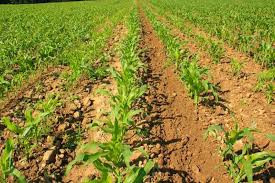
A recent study by the Food and Agriculture Organisation (FAO) offers a sobering global context.
Agriculture remains the backbone of Zimbabwe’s economy, supporting livelihoods, ensuring food security, and sustaining rural communities. Yet, despite its importance, agricultural land in the country is increasingly under threat from degradation.
Soil erosion, nutrient depletion, deforestation, overgrazing, poor farming practices, and the growing impacts of climate change are progressively rendering vast tracts of once-productive land infertile.
If not urgently addressed, land degradation could severely undermine Zimbabwe’s agricultural productivity, threatening food security and economic stability.
To avoid this looming crisis, Zimbabwe must adopt a multifaceted, sustainable approach to land use and agricultural policy.
A recent study by the Food and Agriculture Organisation (FAO) offers a sobering global context.
It revealed that human activity has degraded approximately 1.66 billion hectares of land worldwide, with over 60% of the degradation affecting agricultural areas such as croplands and pastures.
More specifically, in the Arab region, over 46 million hectares of agricultural land are at risk—two-thirds of the 70 million hectares experiencing degradation.
These figures underscore the global urgency to restore land and transform agricultural systems, but they also resonate powerfully with Zimbabwe’s local challenges.
Zimbabwe is no stranger to these dynamics. A legacy of unsustainable land use, combined with rapid population growth and increasing climate variability, has placed enormous strain on arable land. In many areas, farmers—especially smallholders—have few options but to overuse land, applying excessive fertilisers or cultivating on marginal soils, leading to accelerated soil exhaustion and erosion.
The pressure to produce more food from less land creates a vicious cycle of declining fertility and rising vulnerability.
To counter this, Zimbabwe needs to move decisively towards sustainable land management practices.
The FAO study calls for integrated solutions to prevent, reduce, and reverse land degradation.
For Zimbabwe, this means embracing agroecology, conservation agriculture, reforestation, and rotational grazing systems, among other evidence-based interventions.
One promising pathway is the adoption of conservation agriculture (CA), which promotes minimum soil disturbance, permanent soil cover, and diversified crop rotations.
These practices help maintain soil structure, improve water retention, and boost organic matter—key to preventing erosion and degradation.
In districts like Zvimba and Masvingo, smallholder farmers practicing CA have already reported increased yields and healthier soils. Scaling up such initiatives nationwide could yield immense benefits.
Agroecology—farming that works with nature rather than against it—is another powerful tool.
This method integrates crops, livestock, and trees to enhance biodiversity and soil health while minimising synthetic inputs.
Zimbabwe is home to several agroecological training centers, such as Shashe Agroecology School, which equip farmers with the knowledge and skills to regenerate their land and livelihoods.
Supporting these centres and embedding agroecological education into agricultural extension programs can build a new generation of environmentally conscious farmers.
Water management is equally critical. Degradation often stems from water scarcity, which is exacerbated by erratic rainfall patterns and inefficient irrigation.
Investing in rainwater harvesting, drip irrigation, and small-scale water reservoirs can significantly reduce stress on land while increasing productivity.
Zimbabwe’s Ministry of Lands, Agriculture, Fisheries, Water and Rural Development, in collaboration with partners like the FAO, must ensure that water and land strategies are harmonised for maximum impact.
Policy reform is another essential pillar. Land tenure security plays a significant role in sustainable land stewardship.
When farmers have secure land rights, they are more likely to invest in long-term soil conservation measures.
Yet in Zimbabwe, the lack of land ownership clarity—especially post-land reform—often discourages such investments.
Policymakers must prioritise legal frameworks that clarify tenure while incentivising sustainable land use.
Technology, too, has a role to play. The FAO’s launch of the Suitability Crop Platform, a cutting-edge tool that provides soil and crop data, can support evidence-based planning and land restoration.
Zimbabwe should integrate such platforms into its national agricultural systems to guide decisions on crop suitability, land use zoning, and soil health monitoring.
Digital tools like satellite imaging, remote sensing, and GIS mapping can further enhance early warning systems for land degradation and drought.
At the institutional level, land restoration must be embedded into national development plans and climate policies.
Zimbabwe’s commitment to land degradation neutrality (LDN) under the United Nations Convention to Combat Desertification (UNCCD) should be translated into actionable targets, supported by measurable indicators and adequate financing.
Public-private partnerships can also play a role, particularly in financing soil regeneration projects and scaling up sustainable practices across commercial and communal farming areas.
Additionally, Zimbabwe’s youth must be engaged in the fight against land degradation. With high youth unemployment and migration from rural areas, empowering young people through climate-smart agriculture and land restoration training can turn them into stewards of the soil and innovators in sustainability.
Integrating environmental education into schools and vocational training programs will help cultivate this next generation of land champions.
Finally, regional cooperation and international support remain vital. Zimbabwe is not alone in this struggle.
Neighbouring countries face similar challenges, and there is much to gain from cross-border knowledge sharing and collaboration.
Organisations like FAO, UNEP, and the African Union must continue to support Zimbabwe through technical assistance, funding, and research partnerships that advance sustainable land management.
The degradation of its agricultural lands threatens not only food production but the very foundation of rural livelihoods and national development.
But with the right blend of policy reforms, farmer-centered innovations, sustainable practices, and international cooperation, Zimbabwe can reverse the tide.
Protecting the land is protecting the future—of our food, our communities, and our environment. The time to act is now.
*Gary Gerald Mtombeni is a Harare based journalist. He writes here in his personal capacity. For feedback Email [email protected]/ call — +263778861608

